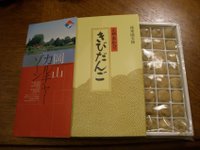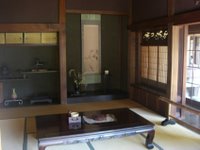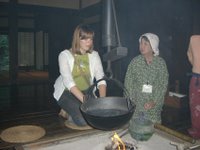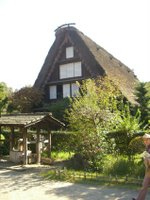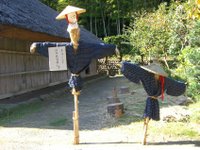In Japan, it seems like your life is a test; in order to move on in life, you must past a test. A test to get you from elementary school to a good junior high, which is supposed to prepare you for the test to get into a good high school, to prepare you for the test to get into a good college, which is supposed to guide you into a good company, which takes fresh grads with no experience, trains them, and gives them lifetime employment (though this is changing); but this is if you can pass the company test that is part of the entrance interview.
In order to do well on the test, after regular classes are over for the day, almost all students attend extra "cram-school" which specialize in certian subjects like English, mathimatics, and natural sciences, studying 4 or more hours.
According to Wikipedia, "the aim of a cram school is to impart as much information to its students as possible in the shortest period of time. The goal is to enable the students to "parrot," that is, to unthinkingly repeat, information that is deemed necessary for particular examinations. Cram schools are sometimes criticized, as indeed are the education systems in the countries in which they are prevalent, for the lack of training their students receive in critical thinking and analysis." (http://en.wikipedia.org/wiki/Cram_school)
If you don't pass the University entrance exams the first time around, you either give up and go straight into the working world, or you become a ronin, spending another year studying for the next entrance exams, sometimes 18 hrs a day. And what is college life? Friends, Nomikai, part-time job, Nomikai, maybe study a little, Nomikai, Nomikai, Nomikai~~!
Was there a point in going to school in the first place??? Ryosuke, I salute your courage to buck the system when you were young. All my international student friends, please make good your opportunity for more choices in life.
You may learn good test taking skills, but this method sure doesn't breed broad, free-thinking minds.
Students in Japan never learn writing skills in English; they focus on grammer points (even then, I see so many funny mistakes, I wonder if they really ever learned anything...). I am very interested to know what people learn in other subjects in school... But as far as I can tell, Speech classes or a Critical Thinking class would never be a undergraduate general eduction requirement. (I will look into what those are at Waseda too...) If the companies take care of new employee training, how does your University and school education train you for your future?
I'm trying to think back to my high school days to remember what I learned... I remembered challenging my math teacher that learning sine and cosine was NOT essential to my dream future job of being an art teacher (that dream is a little different now...). But I know I learned a whole lot of how to write; thesis development, organization, quotation, ect. I may not be to easily sit down with a list of new words and just memorize meanings like a human dictionary (**Rraah! Polly wants a cracker! Rraah!**), but I can argue my point (thank you Debate: Politics and Govn't class).
Every student I've talked to about the test taking system agrees they dislike it, but don't know how to change it. Social change is slow in Japan, and when you've had one political party in control for 50 years, that doesn't speed things up either. Then again, Japanese culture stresses not upseting the status quo or open expression of opinion and the educational system doesn't strive to inspire free thought.
When ever I'd imagined "Japanese-ness" I'd thought of fierce samurai spirit or graceful beauty or cutting edge technology. Until maybe this year, wanted to feel like I wanted to"belong" to Japan, that it was better than America; it carried an exotic allure.
It's still alluring, but not quite as exotic.
So, a question to answer in the future: What does it mean to be Japanese? What are the positive and negitive aspects? What have those of 2nd, 3rd, or 4th generation missed out on?
These are some of the issues that I reflect upon, as I consider my long-term possiblities of life here in Japan.

